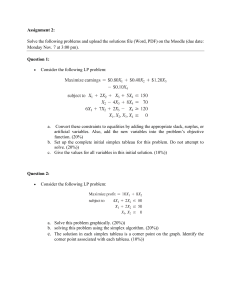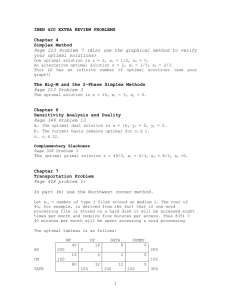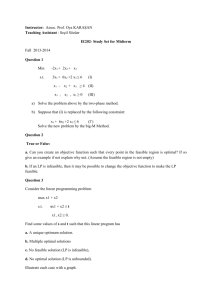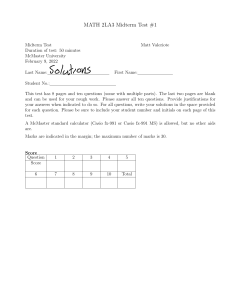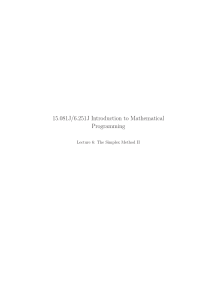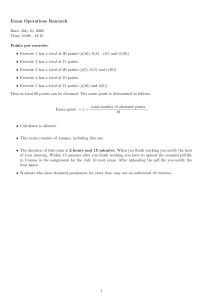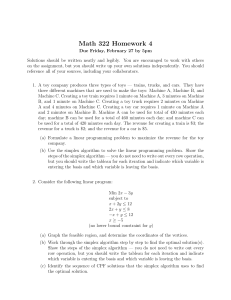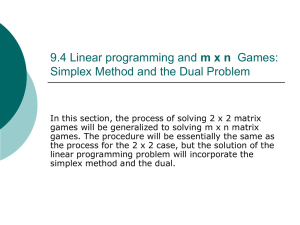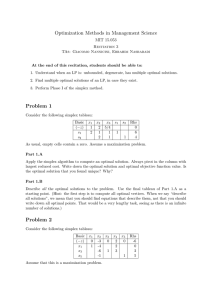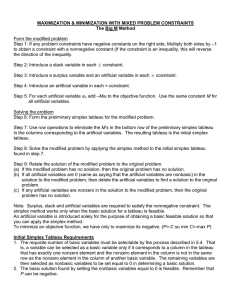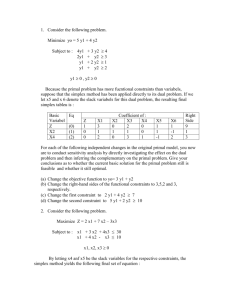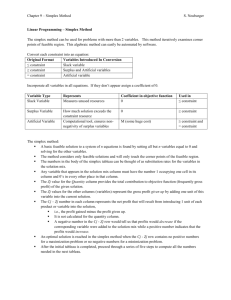Simplex Algorithm: Linear Programming & Tableau Method
advertisement
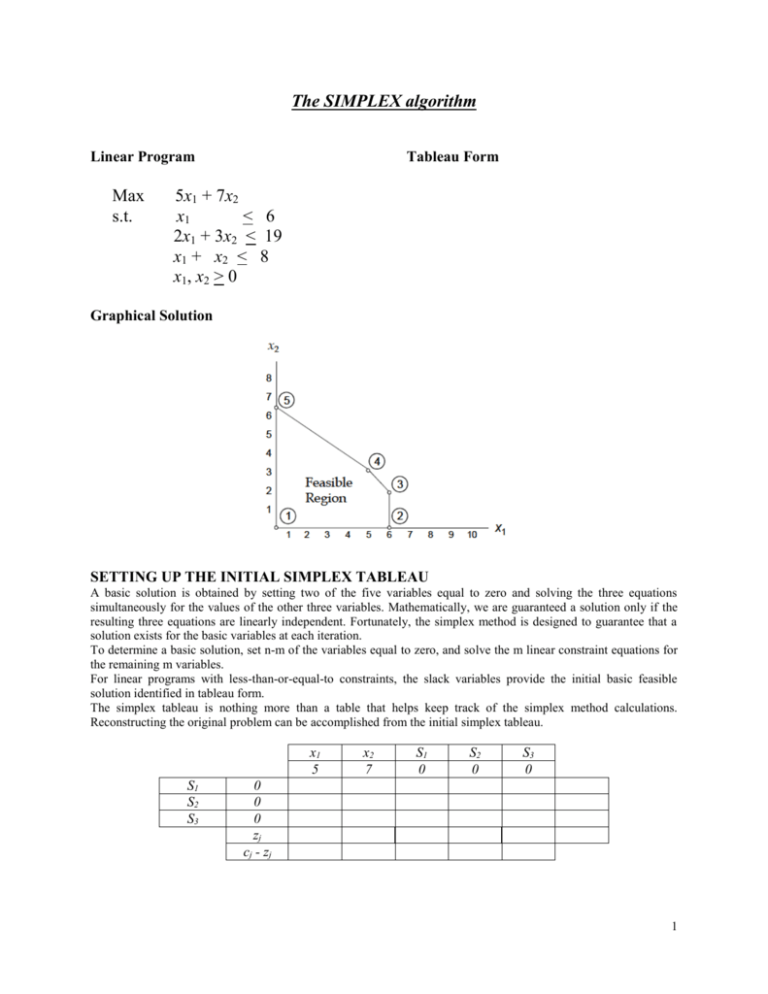
The SIMPLEX algorithm Linear Program Max s.t. Tableau Form 5x1 + 7x2 x1 < 6 2x1 + 3x2 < 19 x1 + x2 < 8 x1 , x2 > 0 Graphical Solution SETTING UP THE INITIAL SIMPLEX TABLEAU A basic solution is obtained by setting two of the five variables equal to zero and solving the three equations simultaneously for the values of the other three variables. Mathematically, we are guaranteed a solution only if the resulting three equations are linearly independent. Fortunately, the simplex method is designed to guarantee that a solution exists for the basic variables at each iteration. To determine a basic solution, set n-m of the variables equal to zero, and solve the m linear constraint equations for the remaining m variables. For linear programs with less-than-or-equal-to constraints, the slack variables provide the initial basic feasible solution identified in tableau form. The simplex tableau is nothing more than a table that helps keep track of the simplex method calculations. Reconstructing the original problem can be accomplished from the initial simplex tableau. x1 5 S1 S2 S3 x2 7 S1 0 S2 0 S3 0 0 0 0 zj c j - zj 1 IMPROVING THE SOLUTION Criterion for Entering a New Variable into the Basis: Look at the net evaluation row (cj - zj), and select the variable to enter the basis that will cause the largest per-unit improvement in the value of the objective function. In the case of a tie, follow the convention of selecting the variable to enter the basis that corresponds to the left most of the columns Criterion for Removing a Variable from the Current Basis (Minimum Ratio Test): Suppose the incoming basic variable corresponds to column j in the A portion of the simplex tableau. For each row i, compute the ratio bi/aij for each aij greater than zero. The basic variable that will be removed from the basis corresponds to the minimum of these ratios. In case of a tie, we follow the convention of selecting the variable that corresponds to the uppermost of the tied rows. S1 S2 S3 0 0 0 zj cj - z j x1 5 1 2 1 0 5 x2 7 0 3 1 0 7 S1 0 1 0 0 0 0 S2 0 0 1 0 0 0 S3 0 0 0 1 0 0 6 19 8 0 19/3 8 CALCULATING THE NEXT TABLEAU S1 x2 S3 x1 5 x2 7 S1 0 S2 0 S3 0 x1 5 x2 7 S1 0 S2 0 S3 0 0 7 0 zj c j - zj zj c j - zj Optimality Criterion: The optimal solution to a linear programming problem has been reached when all of the entries in the net evaluation row (cj - zj) are zero or negative. In such cases, the optimal solution is the current basic feasible solution. 2 3
